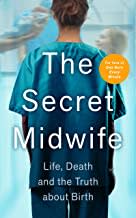Philippa George Biography

Philippa started her midwifery training at the tender age of 17, falling in love with the job from the word go. Three years later she began working as a qualified midwife in her home town in the north of England and has never looked back.
‘To be there at the moment a mother gives birth is the most amazing experience and I never get tired of it,’ she says. ‘It’s an honour and I’m so proud to call myself a midwife.’
Philippa’s calm, kind and funny personality has seen her through some extraordinary times. She gave birth to her own child at the same NHS trust where she worked, and her colleagues, whom she describes as her ‘second family’, delivered her daughter.
However, a year ago Philippa, 35, began to show signs of stress: bursting into tears for no reason, fearful to leave the house and dogged by debilitating insomnia.
She wasn’t the first midwife on her unit to be diagnosed with stress and depression – in fact Philippa says around 10 % of the midwives in her hospital have taken stress-related leave.
She believe chronic underfunding has led to constant staff shortages which leaves the midwives unsupported and overworked. Bad management practices have compounded the problem, making staff alienated and fearful.
For Philippa, just walking into her labour ward every day felt like a roll of the dice.
‘Something is bound to go wrong when you don’t have enough staff, and the management don’t have your back,’ she says. ‘It’s dangerous and I felt like an accident waiting to happen. It’s only in writing this memoir that I’ve begun to understand that the problem was never with me, it was the environment. I hope that in sharing my story, it will start a conversation about how we can treat our midwives with the compassion they deserve.’
Earlier this month the Royal College of Midwives announced that at least one midwife a day quits due to pressure and stress, leaving a nationwide shortfall of 3,500 midwives.
After several months on sick leave for stress and depression, Philippa has now returned to work. * Philippa George is a pseudonym – it is vital to conceal her identity to ensure the privacy of her patients as well as her continued employment in the NHS.

